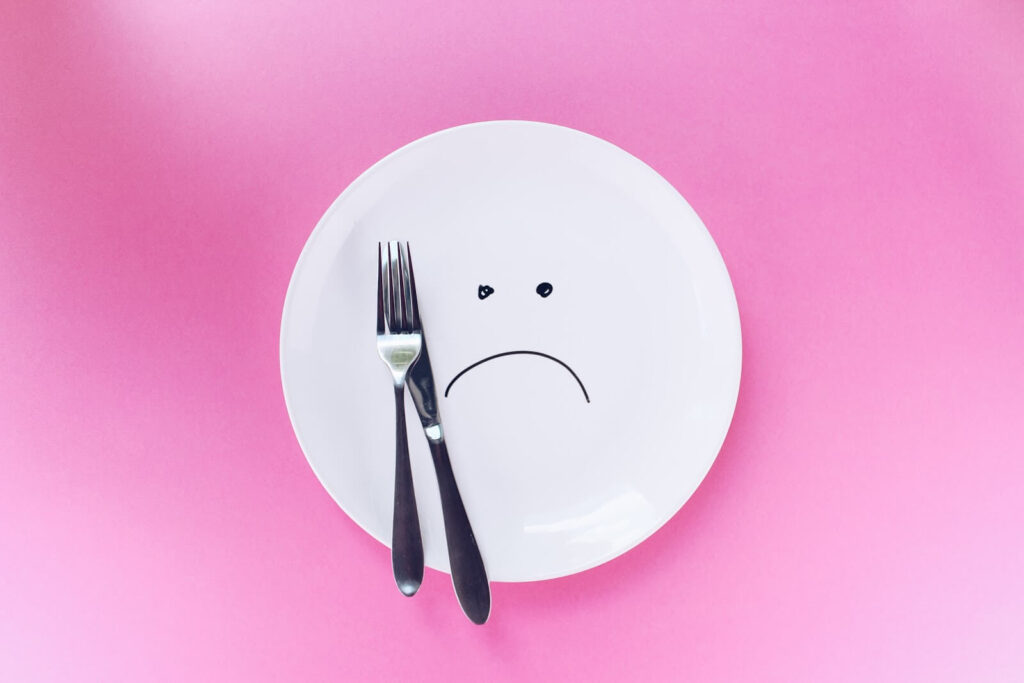The words worse and worst are comparative and superlative forms of the adjectives “bad” and “ill.” We use “worse” to mean ‘more bad’ and “worst” for ‘most bad.’
-
 Alanna Madden
Alanna Madden
-
 July 30, 2020
July 30, 2020
-
 Grammar Tips
Grammar Tips
 July 30, 2020
July 30, 2020
 Grammar Tips
Grammar Tips
The words worse and worst are comparative and superlative forms of the adjectives “bad” and “ill.” We use “worse” to mean ‘more bad’ and “worst” for ‘most bad.’
There are few things worse than bad writing. But the worst is when writers confuse words like “worse” and “worst.” Either term is a comparative or superlative adjective for “bad” and “ill,” but that doesn’t mean we can use them interchangeably.
Since “worse” and “worst” are comparative and superlative adjectives, they ultimately represent varying degrees of ‘bad’ or ‘ill.’ For instance, “worse” is ‘more bad,’ while “worst” is the ‘most bad.’
In addition to their adjective forms, we can also use the word “worse” as a noun or adverb, and “worst” as an adverb, noun, or verb. But as complicated as this looks, the general difference between the words stays the same:
It’s easy to see how English speakers confuse “worse” and “worst.” The words are homophones, which means they have similar spellings and pronunciations, but carry different meanings. The Word Counter covers similar word similarities within articles like “affective vs. effective” and “past vs. passed.”
Worse and worst are also irregular adjectives, which means the words ‘bad’ and ‘ill’ don’t follow regular adjective patterns. For instance, we usually add “-er” or “-est” to the end of adjectives to indicate comparative and superlative forms (e.g., short, shorter, shortest).
English speakers primarily use the term worse as a comparative adjective to describe a noun that is of lower quality, ‘more bad,’ or ‘lesser’ than another. In this sense, the concept of “bad” or “ill” applies to negative attributes, such as:
Example sentences include,
“I feel worse today than I did yesterday.”
“You’re worse than your brother.”
“The food tastes worse when you order to-go.”
“I’m not sure things could get any worse.”
As a mass noun, the word worse describes a person, place, or thing that is ‘more serious,’ ‘more unpleasant,’ or ‘less favorable.’ For example,
“His health took a turn for the worse.”
“There’s worse that could happen.”
“I’ve been through worse than this.”
The adverb form of worse modifies other adverbs, adjectives, or verbs to imply ‘in a worse manner,’ ‘extent,’ or ‘what is worse.’ For example,
“The less you sleep, the worse you’ll feel.”
“Folks are worse prepared than ever before.”
“They could have played a lot worse than we did.”
Common, deficient, inferior, lame, lesser, lousy, lower, mediocre, normal, ordinary, substandard, poor, unsatisfactory, wanting, worst.
Exceptional, extraordinary, incomparable, nonpareil, rare, uncommon, unequaled, unmatched, unrivaled, unusual, unsurpassable.
“Worse” entered the English Language via Old English wiersa and wyrsa (adjectives) and wiers (adverb) Originally a form of Old High German (‘wirsiro’), the term transitioned again in Middle English as ‘werse’ and ‘worse.’

The word worst is a superlative adjective of “bad” and “ill” to describe something of the lowest standard or highest severity.
Sentence examples include,
“He was the worst Uber driver ever.”
“This is the worst thing that’s ever happened to me.”
“The memo reiterated my worst fears.”
As an adverb, the word worst modifies other adverbs, adjectives, and verbs to describe a high degree of inferiority, corruption, or distaste. For example,
“Students are the worst affected by COVID school closures.”
“Pickling is the worst-smelling hobby .”
“Oregon regions worst hit by snow include Pendleton and Ontario.”
The noun form of worst describes someone or something that is “the worst.” For example,
“Isn’t she the worst?”
“I fear the worst is yet to come.”
“Worst-case scenario, we can take a cab instead of the train.”
The verb worst defines the act of ‘getting the better of,’ defeating, or achieving victory over another. Additional verb forms include worsted, worsting, or worsts. For example,
“The Portland Trail Blazers worsted the Philadelphia 76ers in 1977.”
“The soldiers spent the week worsting their enemies.”
Adj., adverb, noun: Atrocious, awful, bad, deficient, dissatisfactory, inferior, lesser, ordinary, routine, rotten, wanting, worse, vile.
Verb: Annihilate, beat, conquer, defeat, master, overcome, prevail, subdue, surmount, sweep, triumph.
Adj., adverb, noun: Exceptional, extraordinary, incomparable, rare, uncommon, unequaled, unmatched, unsurpassed, unusual.
Verb: Collapse, fail, fall, flop, fold, give up, go under, lose.
Modern English adapted “worst” from Middle English werste and worste and Old English wierresta and wystra. Both Old English forms represent the superlative forms of Old English wiersa for ‘worse.’
All adjectives contain comparative and superlative forms. Comparative adjectives describe the difference between the two nouns they modify (e.g., harder, better, faster, stronger). Superlative adjectives compare objects on a scale of upper to lower quality standards (e.g., hardest, best, fastest, strongest). But since “worst” and “worse” are irregular adjectives, their comparative and superlative forms don’t follow typical English grammar.
Regular adjectives develop into comparative and superlative forms based on their number of syllables. Adjectives with one syllable follow a pattern of adding an -er for the comparative form and an -est for the superlative.
Adjective: “cute”
Comparative: “cuter”
Superlative: “cutest.”
If an adjective contains two or more syllables, the original adjective doesn’t always change. Instead, the words “more” and “most” precede adjectives for the comparative and superlative forms, respectively. For example,
Adjective: “exclusive”
Comparative: “more exclusive”
Superlative: “most exclusive.”
English grammar poses an exception for certain two-syllable adjectives. If the adjective ends with -y, -ow, -er, -le-, we add an -er or -est for the comparative form and -est for the superlative forms.
Adjective: “pretty”
Comparative: “prettier”
Superlative: “prettiest”
Adjective: “noble”
Comparative: “nobler”
Superlative: “noblest”
Adjective: “low”
Comparative: “lower”
Superlative: “lowest”
Irregular comparative and superlative adjectives don’t follow a set pattern. Instead, they transform the original adjective into a unique comparative or superlative form. For example,
Adjective: “good”
Comparative: “better”
Superlative: “best”
Adjective: “little”
Comparative: “less”
Superlative: “least”
When it comes to “worse” and “worst,” the irregular adjectives are “bad” and “ill.” Under normal conditions, we would add ‘-er’ or ‘-est’ for “badder” or “baddest.” But since “bad” and “ill” are irregular adjectives, we use “worse” for the comparative form and “worst” for the superlative form.
Adjective: “bad/ill”
Comparative: “worse” or “iller”
Superlative: “worst” or “illest”

To ensure correct usage of worse or worst, it’s important to remember two key factors:
Worst and worse are extensions of the adjectives “bad” or “ill.” Therefore, anything that is “worse” or the “worst” carries a negative connotation. For example,
“Are you feeling worse?” (illness)
“Brad is a worse writer than Kayla.” (unskilled)
“Skydiving is my worst fear.” (most severe)
“Talking to family about politics is the worst.” (unpleasant)
Worse is a comparative adjective that compares one noun to another, while worst is a superlative adjective that compares one noun to a group of objects. For example,
“Generic vitamins are worse than brand-name competitors.” (low quality)
“Generic vitamins are the worst options available.” (lowest quality)
There’s an old phrase in English that says, “if worst comes to worst” or “if worse comes to worst,” which means “if a bad situation becomes even worse,” or “worst-case scenario” (not worse case scenario).
American English uses either phrase interchangeably, but we recommend memorizing “if worse comes to worst” to remember how “bad” can go to “worse,” and “worse” can go to “worst.”
When the word “bad” (actually, as “baad”) conveys the “superabundance of good,” it no longer holds the same meaning of “worse” or “worst.” Therefore, many people resort to using “badder” or “baddest” as comparative and superlative forms.
While dry “standard English” doesn’t yet recognize the use of “badder” and “baddest,” the terms are still common within Black American Vernacular (American English). English teachers may dock grammar points for using “badder” or “baddest,” but until the textbooks catch up, we say it’s perfectly correct to use these terms in this fashion.
A wurst is a type of sausage, but it sounds nearly the same as the word “worst” (aka, homophones).
Test how well you understand the difference between worse and worst with the following multiple-choice questions.
Answers